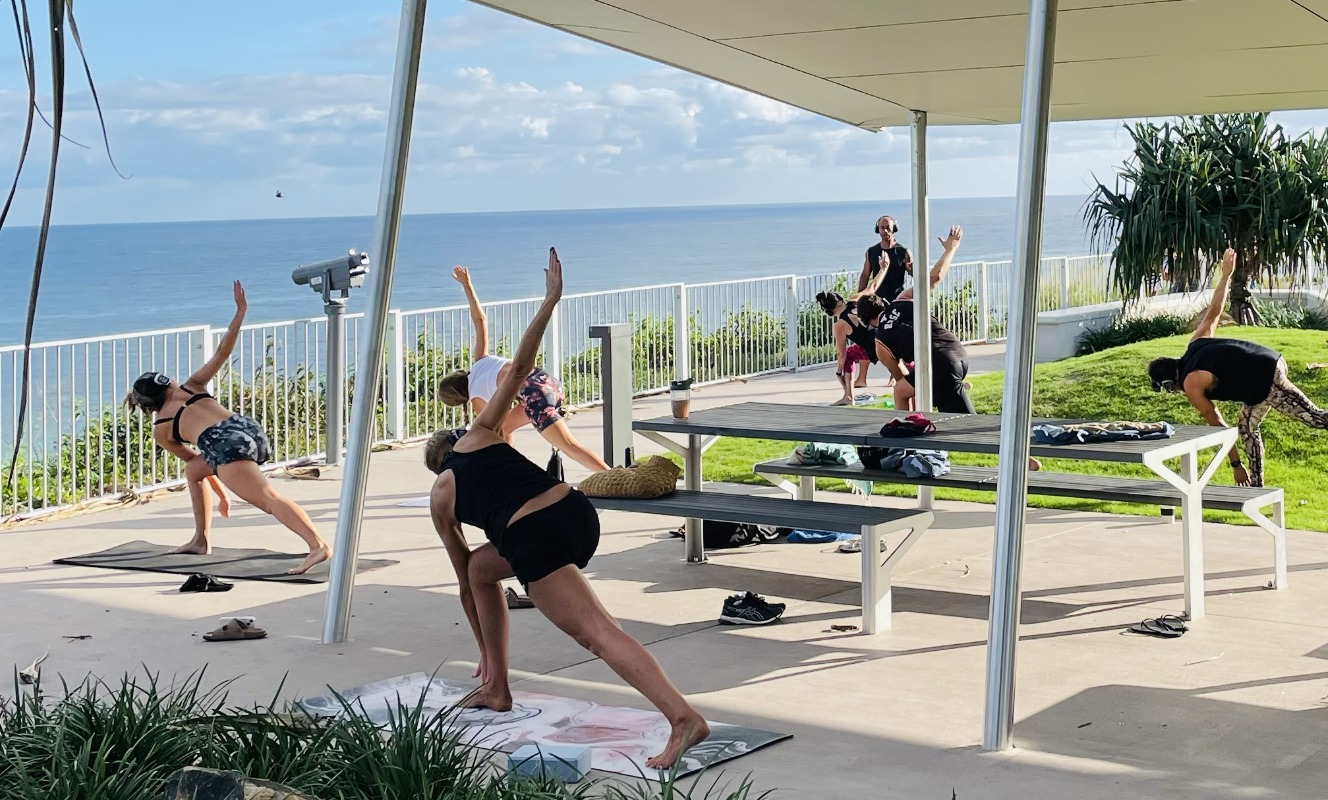
The role of sleep in maintaining a toned body
Sleep plays a crucial role in maintaining a toned body by aiding muscle recovery, regulating hormones, and supporting fat loss. A proper sleep routine enhances workout performance, reduces stress, and helps improve body composition. Insufficient sleep can disrupt metabolism and hinder fitness progress, making 7-9 hours of quality sleep essential for optimal health and fitness results.
💪 Fitness Guru
29 min read · 18, Apr 2025

Introduction
The Role of Sleep in Maintaining a Toned Body
Sleep is often overlooked in the journey to achieve a fit and toned body. While diet and exercise typically steal the spotlight, quality sleep plays a critical and often underestimated role in physical health, fitness, and overall body composition. In today’s fast-paced world, sacrificing sleep has become the norm for many, but this habit may be standing between you and your dream physique. Let’s explore how getting enough rest can help you stay lean, strong, and healthy. Sleep plays an integral role in maintaining a toned body, as it contributes to various processes in the body that support muscle recovery, fat loss, and overall physical health. When we sleep, the body goes through important phases of restoration, allowing muscles to repair and rebuild after exercise. This process, known as muscle protein synthesis, is crucial for muscle growth and strength. Without adequate sleep, the body struggles to repair damaged muscle fibers, which can slow down progress toward a toned physique. Additionally, sleep is essential for balancing hormones that regulate appetite, metabolism, and fat storage. Lack of sleep disrupts the production of leptin and ghrelin, hormones responsible for hunger regulation. When these hormones are out of balance, it can lead to increased cravings for high-calorie foods and overeating, ultimately hindering efforts to maintain a lean body. Moreover, poor sleep can raise cortisol levels, a stress hormone that can contribute to fat accumulation, particularly around the abdominal area. Cortisol not only encourages the storage of fat but also breaks down muscle tissue, which can work against the goal of achieving a toned body. Sleep is also involved in the body's ability to burn fat effectively. During deep sleep, the body enters a state of fat burning, and growth hormone, which promotes fat loss and muscle development, is released in higher quantities. Inadequate sleep reduces the secretion of growth hormone, which means the body is less efficient in burning fat and building lean muscle. For those who are engaged in regular physical activity or exercise, sleep becomes even more important. Intense workouts create microtears in muscle fibers, and without sleep, the body cannot repair these tears effectively, leading to fatigue, muscle soreness, and even overtraining, which can stall progress. Additionally, sleep deprivation can impact physical performance, making it harder to push through workouts and increasing the risk of injury. Restorative sleep is also crucial for maintaining energy levels, and without it, individuals may feel sluggish or tired throughout the day, making it difficult to stay active and committed to exercise routines. The importance of sleep goes beyond just muscle repair and fat loss; it also affects mental health and motivation. Chronic sleep deprivation can lead to mood swings, increased stress, and a lack of motivation to exercise, which can create a cycle of inactivity and poor body image. Sleep also enhances cognitive function, helping individuals stay focused and consistent with their fitness goals, diet, and overall well-being. Sleep, therefore, plays a multifaceted role in maintaining a toned body, influencing everything from muscle recovery and fat burning to hormonal balance and mental well-being. Prioritizing sufficient and high-quality sleep, along with a balanced diet and regular exercise, is key to achieving and sustaining a toned physique.
The Connection Between Sleep and Muscle Recovery
After a vigorous workout, your muscles need time to repair and rebuild. This process doesn’t happen while you’re lifting weights or doing squats – it happens when you rest, especially during deep sleep. During the slow-wave stages of sleep, your body releases growth hormone, which stimulates muscle repair and growth.
Sleep also reduces the levels of the stress hormone cortisol. High cortisol can break down muscle tissue and increase fat storage, particularly around the abdomen. By ensuring you get enough rest, you support muscle recovery and prevent unnecessary muscle breakdown.
Sleep and Fat Loss: The Hidden Link
Many fitness enthusiasts focus on calorie counting and intense cardio to shed body fat. However, studies have shown that inadequate sleep can sabotage fat loss efforts. When you're sleep-deprived, your body experiences hormonal imbalances that influence hunger and satiety.
Lack of sleep increases ghrelin, the hormone that makes you feel hungry, and decreases leptin, the hormone that signals fullness. This hormonal shift leads to increased cravings, especially for high-carb, high-sugar foods. As a result, your diet may suffer, and fat loss becomes more difficult.
The Impact of Sleep on Metabolism
Your metabolism is the engine that burns calories and helps you maintain a healthy body weight. Sleep directly influences metabolic function. When you don’t get enough sleep, your body becomes less efficient at processing glucose, leading to insulin resistance. This condition not only increases your risk of diabetes but also makes it harder to lose weight and maintain muscle definition.
Moreover, sleep-deprived individuals often have less energy to be active during the day. This leads to reduced physical activity and fewer calories burned, creating a negative impact on your overall fitness goals.
Hormonal Balance and Sleep Quality
Hormones are the silent regulators of your body composition. Testosterone, estrogen, cortisol, and growth hormone all play a role in maintaining muscle mass and regulating fat storage. Poor sleep can disrupt this delicate hormonal balance.
For example, both men and women experience a dip in testosterone levels when they don’t sleep well. Testosterone is essential for muscle growth and maintenance, so inadequate sleep can hinder your ability to build and retain lean muscle.
Additionally, disrupted sleep patterns affect your circadian rhythm, which regulates various physiological processes, including hormone secretion, digestion, and cell repair. A misaligned circadian rhythm can slow down your body’s fat-burning potential and overall recovery.
Sleep and Exercise Performance
You can’t perform at your best in the gym or on the field if you’re running on empty. Lack of sleep leads to decreased endurance, slower reaction times, reduced strength, and increased risk of injury. When you're well-rested, your focus, coordination, and stamina improve significantly.
Athletes and bodybuilders prioritize sleep just as much as their training and nutrition. They understand that without quality sleep, their efforts in the gym won’t translate into visible, long-term results. Sleep enhances motor learning, which means you can perfect your form and technique more efficiently.
The Importance of REM and Deep Sleep Stages
Not all sleep is created equal. Your sleep cycle consists of multiple stages, including REM (Rapid Eye Movement) and non-REM sleep. Deep sleep, part of the non-REM stage, is when most of your physical recovery takes place. REM sleep, on the other hand, is crucial for cognitive functions and mental restoration.
Missing out on either of these stages can negatively affect your body’s ability to recover and grow. Ensuring a full night’s rest (typically 7-9 hours) allows your body to cycle through these stages multiple times, maximizing both physical and mental recovery.
Sleep and Mental Health: The Mind-Body Connection
A toned body isn’t just about muscles and fat percentages – it’s also about feeling confident, focused, and motivated. Poor sleep can take a toll on your mental health, leading to increased anxiety, irritability, and even depression. When your mental state is compromised, it becomes harder to stay consistent with workouts and healthy eating.
Sleep helps regulate mood and reduce stress. A positive mindset supports better decision-making and keeps you on track toward your fitness goals. Prioritizing sleep is one of the easiest ways to improve your mental and emotional resilience.
Practical Tips to Improve Sleep for a Toned Body
- Stick to a Consistent Schedule: Go to bed and wake up at the same time every day, even on weekends.
- Create a Bedtime Routine: Engage in calming activities like reading, stretching, or meditating before bed.
- Limit Screen Time: Avoid electronics at least an hour before bed to reduce exposure to blue light.
- Optimize Your Sleep Environment: Keep your room cool, dark, and quiet. Invest in a good mattress and pillows.
- Avoid Stimulants: Limit caffeine and heavy meals close to bedtime.
- Stay Active During the Day: Regular exercise promotes better sleep quality at night.
- Manage Stress: Practice mindfulness, deep breathing, or journaling to calm your mind.
Conclusion: Make Sleep Your Fitness Superpower
Sleep is more than just a time to rest – it’s a powerful tool for transforming your body and health. From muscle recovery and hormonal balance to fat loss and mental clarity, sleep touches every aspect of your fitness journey. No matter how clean your diet is or how intense your workouts are, without adequate rest, your body won’t function optimally.
So, if you’re aiming for a toned, energetic, and healthy physique, don’t underestimate the value of a good night’s sleep. Prioritize rest as much as you prioritize your workouts and meals – your body will thank you with visible results and renewed vitality.
Q&A Section
1. Why is sleep important for muscle recovery?
Ans:- Sleep is essential for muscle repair and growth. During deep sleep, the body releases growth hormone, which helps in tissue repair and muscle recovery after exercise.
2. How does sleep impact metabolism?
Ans:- Adequate sleep regulates hormones responsible for hunger and metabolism, helping maintain a healthy balance, which can support fat loss and muscle building.
3. Can sleep deprivation affect workout performance?
Ans:- Yes, lack of sleep can reduce energy levels, focus, and strength during workouts, leading to decreased performance and slower progress.
4. How does sleep contribute to fat loss?
Ans:- Sleep helps balance cortisol and insulin levels, reducing fat storage and promoting fat-burning processes during rest.
5. What happens when you don’t get enough sleep?
Ans:- Insufficient sleep increases stress, disrupts hormone levels, and may lead to overeating or poor food choices, hindering fitness goals.
6. Is there an optimal amount of sleep for maintaining a toned body?
Ans:- Most adults need 7-9 hours of sleep per night for optimal muscle recovery, fat loss, and overall health.
7. How does sleep influence stress and weight gain?
Ans:- Poor sleep increases cortisol, the stress hormone, which can lead to increased appetite and fat storage, particularly around the abdominal area.
8. Does sleep impact hydration and muscle function?
Ans:- Sleep helps maintain hydration balance and allows muscles to replenish electrolytes, improving muscle function and reducing cramps.
9. Can quality sleep improve body composition?
Ans:- Yes, quality sleep helps regulate hormones like leptin and ghrelin, controlling appetite and supporting muscle growth while reducing fat storage.
10. How does sleep affect overall health and fitness progress?
Ans:- Proper sleep enhances physical performance, aids recovery, supports fat loss, and helps maintain energy levels for sustained fitness progress
Similar Articles
Find more relatable content in similar Articles

The Silent Workout: Fitness Without Any Equipment or Noise...
“Discover the power of silent .. Read More

Fitness Lessons from Wild Animals – Move Like Nature Intende..
“Discover how observing wild a.. Read More

Microbiome and Muscle: Gut Health as a Hidden Fitness Tool...
Unlock the hidden potential of.. Read More

The Science of Breathwork: Fitness Beyond Muscles...
Exploring how conscious contro.. Read More
© 2024 Copyrights by rFitness. All Rights Reserved.